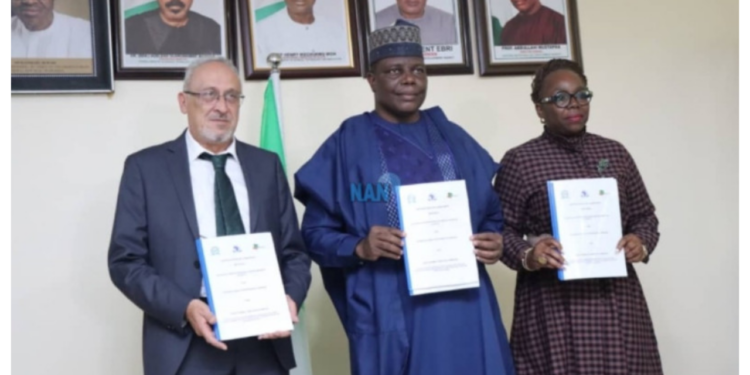Nigeria has advanced further with plan to deploy biotechnology in the petroleum sub-sector of the economy.
The initiative heightened recently when the Nigeria’s National Biotechnology Development Agency (NABDA), the Nigerian National Petroleum Company Limited, NNPCL and Nigerian subsidiary of the Moroccan company RVD Equipement industries, RAHAD Global Investment, endorsed a tripartite Memorandum of Understanding (MoU) on the deployment of biotechnology in the petroleum industry.
The three bodies will collaborate in the use of biotechnology to address persistent challenges in Nigeria’s upstream and downstream petroleum industry.
The partnership will focus on applying biotechnology tools in oil tank farm cleaning, crude oil and paraffin recovery, and remediation of oil-contaminated soil.
The NABDA’s Director-General Abdullahi Mustapha highlighted the importance of using biotechnology to solve problems in the petroleum industry as part of efforts to promote economic “rejuvenation and environmental sustainability.”
He indicated that NABDA researchers will work with Rahad Global Investments to develop the technology, while NNPC will be responsible for implementation.
“Through biotechnology application, the soil will be rejuvenated where the exploration has taken place and paraffin would be recovered, instead of destroying the environment where the chemical was used,” Mustapha explained.
Describing the partnership as a “milestone,” Mustapha underlined the “strong resolve and commitment” that the three agencies have displayed.
“I am strongly convinced that if similar dedication and commitment shown so far are taken into the implementation stage, all planned activities under the Agreement would be achieved.”
On her part, Managing Director of the NNPCL, Energy Services, Sophia Mbakwe,l emphasized that the company will ensure that remediation and cleaning of the tank farm are properly done without harm to the environment, people, or soil.
“With all partners involved, we will be the ones to ensure full implementation of all the processes,” she said.
Meanwhile, Chbihi Driss, CEO of Rahad Global Investment, expressed his excitement about the collaboration, saying that it would enable Nigeria to reduce oil discharges that pollute soil and groundwater, gradually replace mechanical and chemical techniques with non-polluting biotechnology, and create job opportunities through the domestication of the technology.
“This income, jobs, depollution, bio and high technology package will make this project a showcase of technical mastery at the international level,” he emphasized.



